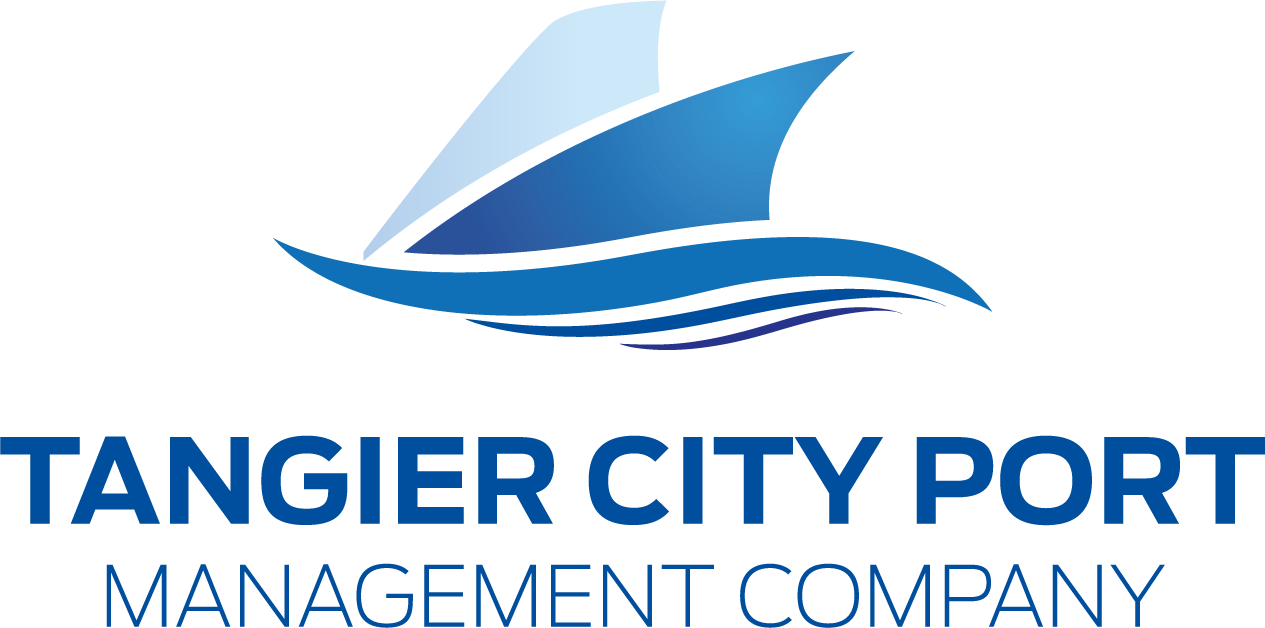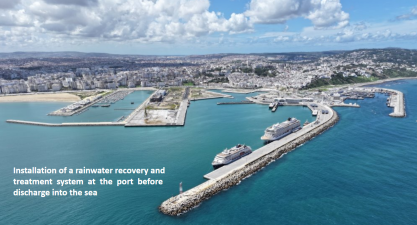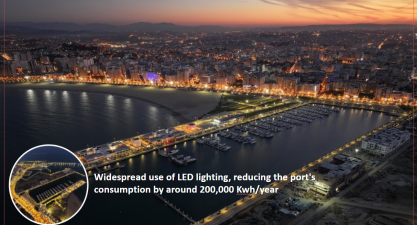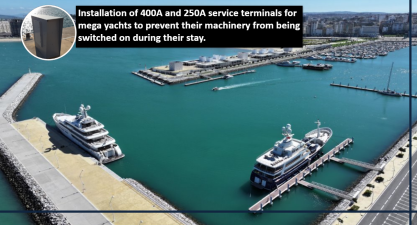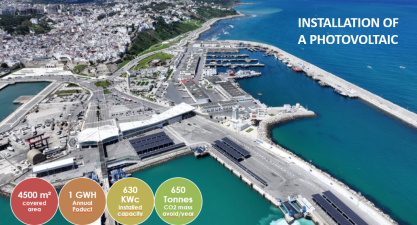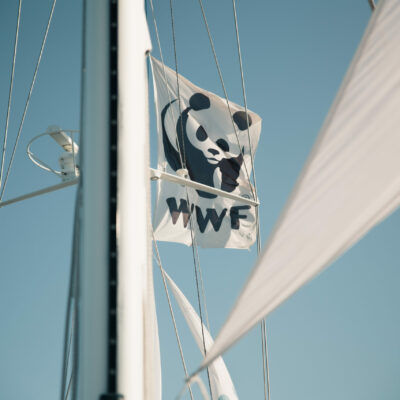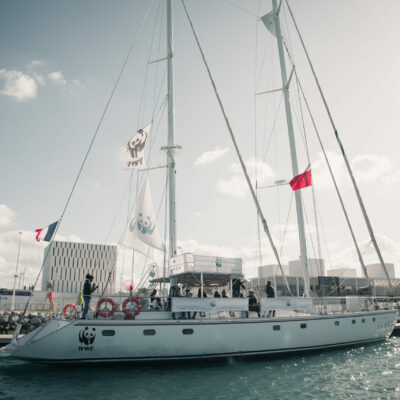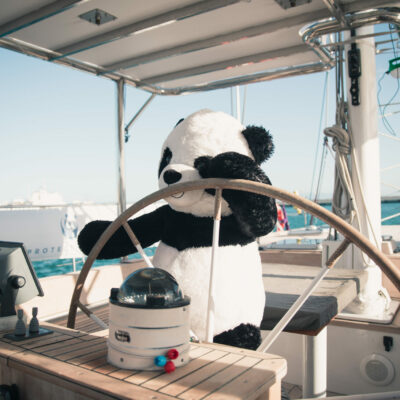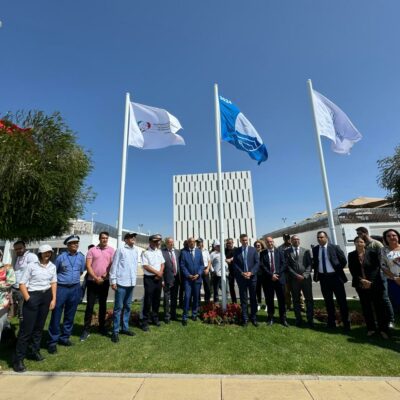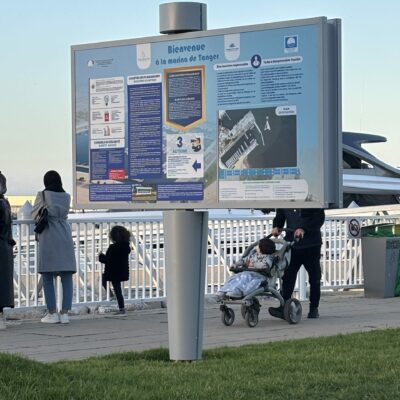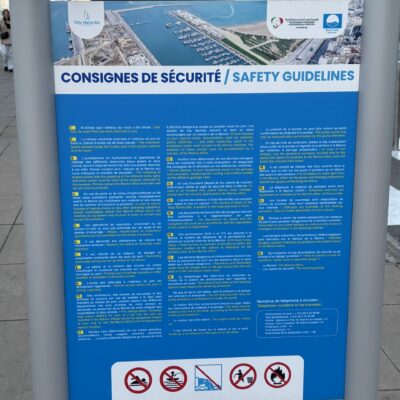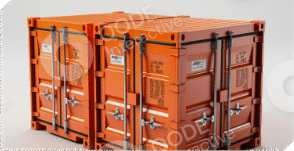Tangier City Port :
Environemental Sustainability
Home > sustainability
Sustainability

Throughout its development phases, the Tangier City Port Conversion project has prioritized environmental sustainability through :
⦁ Renewable energy utilization: Photo Voltaic Energy Production Station; 4500 m² shading area with photovoltaic panel coverage: annual production of 1 GWH, CO2 emissions avoided: 650 Tons per year,
⦁ Energy performance: Widespread use of LED lighting which helped to reduce the annual energy consumption by 200,000KWH/year as well as the public lighting maintenance costs,
⦁ Reuse of demolition materials and dredging sand, and the establishment of an environmental monitoring plan.
⦁ Rehabilitation 2 water sources to watering all the port’s green spaces, allowing to save 150 M3 of drinking water per day,
⦁ Protection of biodiversity and preservation of marine and terrestrial ecosystems around the port,
⦁ Installation of screens against the sand of the beach as physical and natural barriers to return the accumulated sand to the beach and prevent its desilting,
⦁ Acquisition of equipment to combat marine pollution by hydrocarbons (floating booms, skimmers…),
⦁ Installation of oil separators to treat rainwater from the port’s quays, and water treatment kits for the port’s sanitary facilities.
⦁ Adoption of an efficient waste management system through the installation of a waste management unit in the marina,
⦁ Investment in eco-friendly technologies
⦁ Installations such as the marina‘s onshore power system
Moreover, the redevelopment has incorporated green spaces, waterfront promenades, and ecological restoration initiatives, enhancing biodiversity and mitigating environmental impacts. In addition to this, a collaboration with associations such as WWF in taking awareness-raising actions and organizing events for the population (zero plastic) are some other actions of Tangier City Port to promote sustainability.
Plastic Smart Cities Tangier 2030
Plastic Smart Cities is a global movement of cities committed to achieving zero plastic leakage in nature. Since 2018, the initiative has supported cities and coastal centers in taking bold action to stop plastic pollution. The goal is to reduce plastic leakage by 30% in the near term and achieve no plastics in nature by 2030.
Participation by the city of Tangier in the Plastic Smart Cities initiative:
⦁ Adopt and implement an action plan with measurable targets and actions to reduce the use of single-use plastic and improve waste management.
⦁ Develop circular economy solutions to achieve a measurable reduction in plastic pollution. The pilot area will see a 30% reduction in plastic within 2 years.
⦁ Engage with leading tourism businesses to avoid and replace single-use plastic (boaters, hotels, bars, restaurants…).
⦁ Increase public commitment to reducing plastic use and adopting efficient waste disposal through communication and public awareness campaigns.
Tanja Marina Bay International in an active actor of this international Project. A waste management unit aspired at recycling effort; this initiative came as part of the Plastic Smart Cities project, which aims to reduce plastic waste leakage into the environment by 2030, the port of Tangier is considered one of the city’s pilot establishments involved in this project.
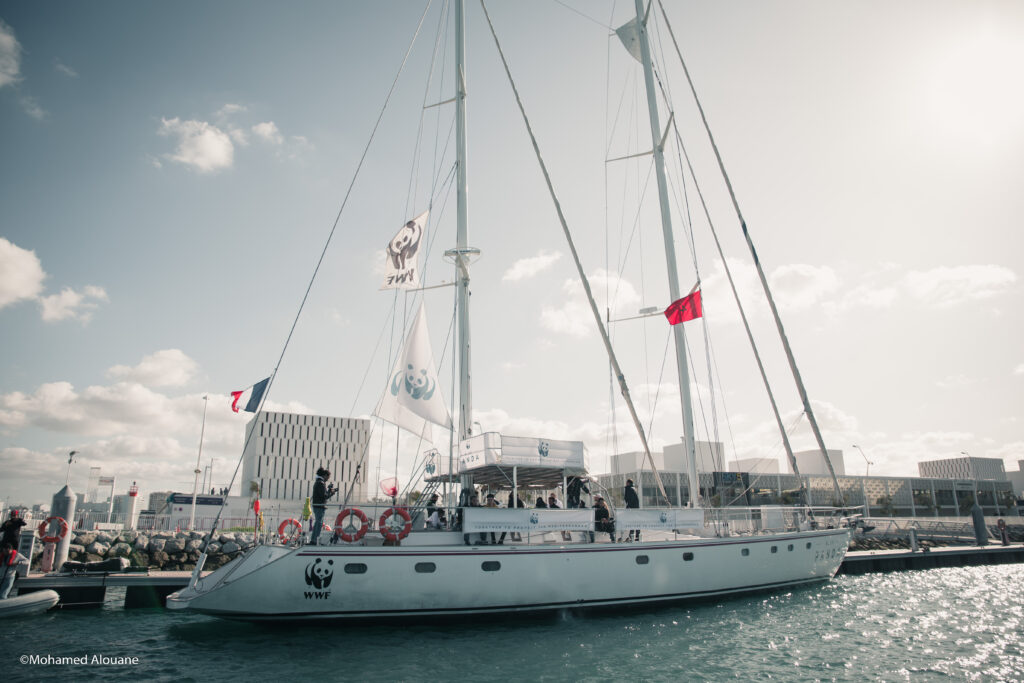
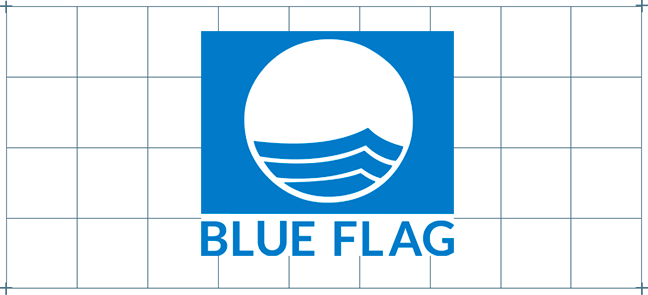
Blue Flag
Blue Flag Excellence: A Symbol of Environmental Commitment
The international Blue Flag ecolabel, introduced in Morocco in 2002 by the Mohammed VI Foundation for the Protection of the Environment, testifies to the Kingdom’s commitment to preserving its natural sites and is now flying within the Tanja Marina Bay International Marina.
This recognition testifies to the commitment of the Port and its Marina to the protection of the environment and biodiversity.
